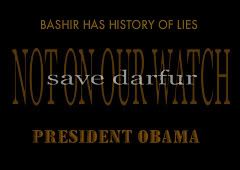OUR WORST FEAR MORE THAN DEATH IS REJECTION FROM EACH OTHER
WHy ARe We so AFraid of each other? We are. Otherwise, there would be no bigots, no greed, no hunger because we would reach out and give to those in need. But instead we look for reasons to reject others for the purpose to bolster ourselves up. It can be how someone dresses. It can be the shade of someone's flesh. It can be someone's hair or breadth of a nose. It can be because someone is perceived to be different. Pick a way. We have surely found an infinite amount of ways to make someone else inferior to allow our egos to feel superior.
If we didn't fear we wouldn't have words such as fear, hatred, crimes, starving, bigot, racism, sexism, genocide.....
...unless we all have plenty one of us will become a thief
the thief will make you angry
you will hurt him
this will hurt his children
they will punish you
this will hurt your children
they will punish his children
and that's how it begins
to believe in man is to know
peace will not work
if just one man alive
is unjust
if one many alive
is ignorant or hungry or crazy or ashamed
for we have seen
if only one of us
decides to pull the plug,
the millions of us can kiss the world good bye
whether we like it or not.
all we ask o lord
is to be safe
from the rain
just warm
enough in winter
to watch the snow with a smile
enough to eat
so that our hunger will not
turn us to angry beasts
and sanity enough
to make a justice
that will not kill our love of life...
Remember
ALL thOse things
we used To blAMe oN the devil
ANd
ALL tHose thi
Ngs
We LeFt uP to god?
NOW iT's
ALL A HUNDRed tiMes
MORE
COMPLicated
Wd MUST becOMe NeW MeN
oR be SAtisfied
AS We ARe.
...eitHer WAy We RisK tRAgedy.
WHO
WERE
YOU
ALL
?
we spoke in short
setences
with our lips and eye
brow
we kept our teeth
white and
we smiled.
We could hard-
ly figure out why
We were here
but we tried
to love life
hoping it had
reasons of its own.
our worst ugliness
was our blindness
to our own beauty
and our fear
more than death
was rejection
from each other.
Above text taken from the book to believe in man by Joseph Pintauro
April 4, 2008 ~ THE (BILL MOYERS) JOURNAL takes viewers on the ground in the Democratic Republic of the Congo to follow aid workers and local relief efforts that are bringing hope to a forgotten land. "The aid agencies are almost substituting for a social welfare system that hasn't operated in these areas for decades," says Dominic MacSorley, Emergency Director for Concern Worldwide, an international aid organization.
Listen to the podcast (help)
Subscribe with iTunes

Bill Moyers Journal's Blog
Here is just a bit of the beginning of the text of tonight's show:
BILL MOYERS: Welcome to the JOURNAL.
The head of the United Nations' world food program says "a perfect storm" is hitting hungry people around the globe. The cost of food is soaring. Food riots have broken out in Indonesia, Pakistan, and Egypt, where the price of bread rose 10 times in a week. Afghanistan has asked for urgent help. Forty countries are judged to be at risk of serious hunger, or already suffering from it.
Here in America the number of people using food stamps is projected to be the highest since the program began in the 1960s. Next week we'll look at hunger in America, but tonight, our subject is what's happening among the poorest of the poor in the world. We begin with a report from the center of Africa, the Democratic Republic of the Congo.
Few places on earth have been as troubled as this large and complex country — three times the size of Texas. In the 19th century King Leopold II of Belgium treated it as his private treasure trove, plundering its ivory and rubber. We knew it as the Belgian Congo in the early 1900s, and then, after independence, as� "Zaire." For three decades the country was run by Dictator Mobutu Sese Seko, whose brutality and corruption as propped up by western business and political interests, including generations of American presidents.
In 1994 chaos erupted as refugees and warring parties from neighboring Rwanda spilled over the border. After fierce fighting, the rebel army finally forced the dictator into exile and Zaire became the Democratic Republic of the Congo. But five million people have died; the carnage has been devastating, and the country's resources exploited by local and foreign predators.
Despite national elections and an official end to the fighting, the suffering continues to this day. 45,000 people are said to die every month of hunger and disease.
Take a train from Lubumbashi to Likasa and the Congolese will talk freely about the tragedy of their country.
Whatever happens to the Congo over the long term, right now the task is getting food to�those hungry people. My colleague David Murdoch went there to see how it's being done. Here is his report of how some people manage to do the best of things in the worst of times.
DOMINIC MACSORLEY: Congo, it's a country that through years of war and neglect-- it's completely crumbled.
BILL MOYERS: Dominic MacSorely is Emergency Director for Concern Worldwide, an international aid organization. Over the past fourteen years, he has run four different missions in the Congo...
NKULU MUJINGA (Subtitle): We can't rely on the assistance forever. There will be a time when no one will be willing to help. Someday we will get our old lives back, if God hears our prayers.
Kiluba: Ita ya twenda nayo. Eyi bintu bia kwashi nabio tufika djesha anu nanki, ke be tubile bio ne kumbele, ke tukafika mu kutukwashi. Ne monka mutasabudila ne bumi, tupete bukome kudima kupita na kwa wadi na milango onso asaka kupwa.
DOMINIC MACSORLEY: The whole recovery is so encouraging. But deep down, people are still very apprehensive about what the future's going to hold. Because they still don't believe that we have completely turned a corner.
What they're saying is, "What happens if there isn't enough to eat in the village? Will the guys who carried the guns pick 'em up again?" That's their fear. "If there isn't enough to eat, somebody will pick up a gun again and take enough to eat."
NKULU MUJINGA (subtitle): When there is war, we suffer endlessly. It destroys our lives. Once fighting is over and peace is restored, then everything will be possible.
Kiluba: Mumoni, mwini inamini ni nvita. Nvita butupwila tisi konka, kamono kekala nkonka, kadi ketukana kako, kasusula Bantu. Nvita ijokejele Bantu nyuma, ya Bantu bafwila mushinda, balonga kika i nvita, masusu endele ko kudilo kumbele. Shi kutupu ku tu leza kutu amba ne 'Mpe' ni ndoe. Kamwanyeke.
DOMINIC MACSORLEY: On a personal level you really look in these communities for positive things that's the motivating thing.
Has everything been crushed? Has the war destroyed everything? Is the human spirit, you know, now so defeated that it's going to take another generation? And I actually think that if you were able to bring people out here meet these kids and meet these mothers and-- because they all share the same kind of fundamental dreams that anybody has.
They want a better future for their kids.
And I think if people saw that, then they would realize and say, "Yes, they have a right to it."
When I see people struggling like that, I think it's just unacceptable in this day and age. It's completely unacceptable.
Read the entire transcript, hear the pod cast and see the video at
PBS Bill Moyers Journal 04 04 2008 watch
>More on Concern and the CongoLabels: Afghanistan, AFRICA WILL LEAD US, Bill Moyers, CONCERN, Egypt, ilovemylife, Indonesia, MacSorely, Pakistan, Republic of Congo, Sandra Hammel, Seko, Starving People in 2008, Swahili, UN, Zaire





0 Comments:
Post a Comment
Subscribe to Post Comments [Atom]
<< Home